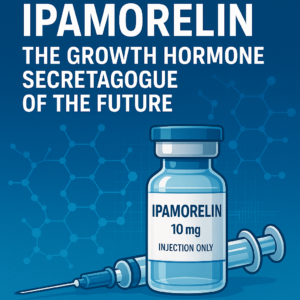Understanding Kratom and Its Hydration Needs
Kratom is gaining popularity for its diverse effects, from pain relief to energy boosts. As more people incorporate it into their daily routines, understanding the importance of hydration becomes crucial. Many newcomers overlook this vital aspect. This oversight can lead to some unpleasant experiences. In this post, we’ll explore why hydration matters when using kratom and offer practical tips to avoid rookie mistakes.
What Is Kratom?
Kratom is derived from the leaves of the Mitragyna speciosa tree, native to Southeast Asia. Traditionally, locals chewed the leaves for their stimulating effects. Today, it is available in various forms, including powders, capsules, and extracts. People use kratom for various reasons. Some seek pain relief, while others look for mood enhancement or increased energy.
The active compounds in kratom, mainly mitragynine and 7-hydroxymitragynine, interact with the brain’s opioid receptors. This interaction can produce effects ranging from stimulation to sedation, depending on the strain and dosage. However, this also means that combining kratom with certain substances can lead to unexpected outcomes. Knowing how to use kratom responsibly is essential for maintaining health and well-being.
The Importance of Hydration
Hydration is crucial for everyone, but its importance escalates when using substances like kratom. Many people underestimate how much fluid their bodies need to function optimally. When using kratom, hydration plays an even more significant role for several reasons.
First, kratom can have dehydrating effects. If your body isn’t adequately hydrated, you might experience side effects like headaches, nausea, or fatigue. The stimulating properties can also increase your heart rate, potentially leading to further dehydration. Staying well-hydrated helps mitigate these risks and promotes a more positive experience.
Second, adequate hydration supports the efficient processing of kratom in the body. Water aids digestion and helps transport nutrients, allowing your body to absorb kratom’s active compounds fully. Furthermore, when you’re well-hydrated, your liver and kidneys function better. This improved efficiency can reduce the likelihood of adverse reactions.
Signs You Might Be Dehydrated
Recognizing the signs of dehydration can help you take action before it becomes a serious issue. Here are some common symptoms:
- Thirst: This is often the first sign that your body needs more water.
- Dry Mouth: A lack of saliva can make your mouth feel dry and uncomfortable.
- Fatigue: Feelings of tiredness or lethargy are common indicators.
- Dizziness: Especially when standing up, dizziness can signal a lack of hydration.
- Dark Urine: Urine that is dark yellow often indicates dehydration.
Being mindful of these symptoms can help you respond quickly. If you notice any of these signs, make it a priority to drink water. Ignoring these signs can lead to more severe complications.
How Much Water Do You Need?
The question often arises: how much water should you drink? While individual needs vary, a general guideline exists. The National Academies of Sciences, Engineering, and Medicine recommends:
- For men: Approximately 3.7 liters (or about 13 cups) of total beverages daily.
- For women: Roughly 2.7 liters (or about 9 cups) of total beverages daily.
However, these figures are for average hydration. When consuming kratom, you might require more. Consider factors such as exercise, climate, and individual metabolism. Keeping a water bottle handy can help remind you to sip throughout the day.
Best Practices for Staying Hydrated with Kratom
Incorporating hydration into your kratom routine can enhance your overall experience. Here are some best practices to follow:
1. Drink Water Before Taking Kratom
Having a glass of water before consuming kratom can set a strong foundation. This way, your body starts off hydrated, ready to absorb the active compounds efficiently.
2. Monitor Your Intake Throughout the Day
Throughout the day, regularly check in with your hydration levels. Aim to drink water consistently rather than waiting until you’re thirsty. Keeping a water tracking app or journal can be helpful.
3. Avoid Dehydrating Substances
Alcohol and caffeine can lead to increased dehydration. If you enjoy these substances, balance them with extra water. For every caffeinated drink, consider drinking an additional glass of water to counteract the dehydrating effects.
4. Consider Electrolyte Drinks
Electrolytes help maintain fluid balance in your body. If you find yourself feeling low energy or fatigued after consuming kratom, consider an electrolyte drink. Look for low-sugar options and natural ingredients.
Common Mistakes New Users Make
As with any substance, first-time users often make mistakes that can lead to undesirable experiences. Here are some frequent concerns to keep in mind:
1. Ignoring Hydration Needs
Many newcomers don’t realize how crucial hydration is. Underestimating the need for water can lead to unpleasant side effects. It’s essential to prioritize hydration before, during, and after consumption.
2. Consuming Kratom on an Empty Stomach
Taking kratom without eating can lead to discomfort. This mistake can amplify dehydration effects. Instead, consider having a light meal to aid digestion and hydration.
3. Mixing Substances Without Care
Some users mix kratom with other substances, thinking the effects will enhance each other. However, this practice can lead to unpredictable reactions. Always be cautious and consult reputable sources before mixing.
4. Overconsumption
It’s easy to assume that taking more kratom will lead to stronger effects. However, overconsumption can result in heightened side effects and complications. It’s wise to start with a low dosage and gradually increase it as needed.
Different Strains and Their Hydration Needs
Kratom comes in various strains, each with unique effects. Different strains can have varying impacts on hydration. Here’s a quick breakdown:
| Strain Type | Effects | Hydration Tips |
|---|---|---|
| Red Vein | Sedation, pain relief | Focus on hydration to reduce fatigue |
| Green Vein | Balanced energy and relaxation | Maintain a consistent intake during use |
| White Vein | Energy boost | Drink extra water to offset stimulation |
| Bentuangie | Relaxation and pain relief | Eat hydrating foods like fruits |
Understanding how each strain affects you can help tailor your hydration strategy. Experiment and see what works best for your body.
Expert Tips for Staying Hydrated
To wrap up our discussion on kratom and hydration, here are some expert tips for staying hydrated effectively:
1. Use Infused Water
If standard water feels dull, try infusing it with fruits or herbs. Ingredients like lemon, cucumber, or mint can make hydration exciting. Infused water can encourage more frequent consumption.
2. Set Reminders
Use phone alarms or apps to remind you to drink water throughout the day. It’s easy to forget when busy, so a prompt can help keep you on track.
3. Keep a Hydration Journal
Documenting your hydration can reveal patterns and help you improve. Write down how much you drink daily and note how you feel. This practice can lead to a more mindful hydration routine.
4. Adjust for Activity Levels
If you engage in physical activity, increase your fluid intake to compensate for sweat loss. Hydrating before, during, and after exercise is essential for overall health.
Final Thoughts
Kratom has gained attention for its potential benefits, but hydration is often overlooked. Understanding the connection between kratom use and proper hydration can significantly enhance your experience and wellbeing. By recognizing the signs of dehydration and utilizing effective strategies, you can avoid rookie mistakes.
Stay committed to your hydration habits, monitor your body’s signals, and enjoy your kratom experience safely and responsibly!
Frequently Asked Questions
1. Can I drink alcohol while using kratom?
Mixing alcohol and kratom is not recommended. Both substances can lead to increased dehydration and unpredicted side effects.
2. How soon should I hydrate after taking kratom?
It’s best to drink water before, during, and after taking kratom. This consistency will support your body’s hydration needs effectively.
3. What are some hydrating foods I can eat?
Foods high in water content include cucumbers, watermelon, oranges, and celery. These can provide additional hydration benefits.
4. Does kratom affect my hydration needs?
Yes, kratom can have dehydrating effects. Therefore, increasing your water intake when using kratom is vital.
5. Is it safe to use kratom daily?
Daily use can lead to tolerance and potential dependency issues. It’s best to consult a healthcare provider for personalized advice.
6. How do I know which kratom strain is best for me?
Experiment with different strains and pay attention to how they affect you. Starting with low doses can help you find what works best for your needs.
7. Can I mix kratom with other herbal supplements?
Caution is advised when mixing. Always research interactions and consult health professionals before combining substances.
8. What should I do if I experience side effects?
If you experience side effects, hydrate immediately. If symptoms persist, consult a healthcare professional for further guidance.
9. How often should I drink water throughout the day?
Aim to drink water consistently during the day, reaching approximately 2-3 liters, adjusting for your activity level and kratom consumption.
10. Are there any long-term effects of kratom consumption?
Long-term use can lead to tolerance, dependency, and withdrawal symptoms. It’s essential to use kratom responsibly and consult healthcare professionals if necessary.







